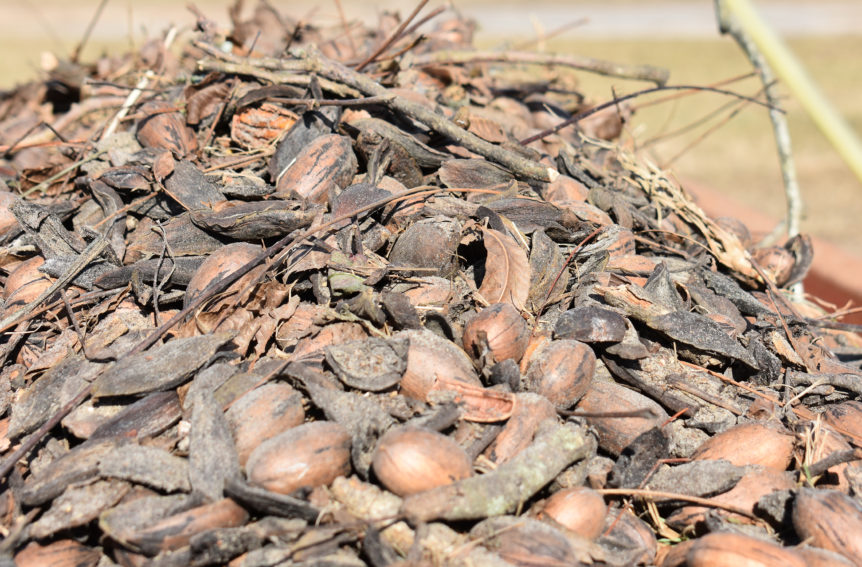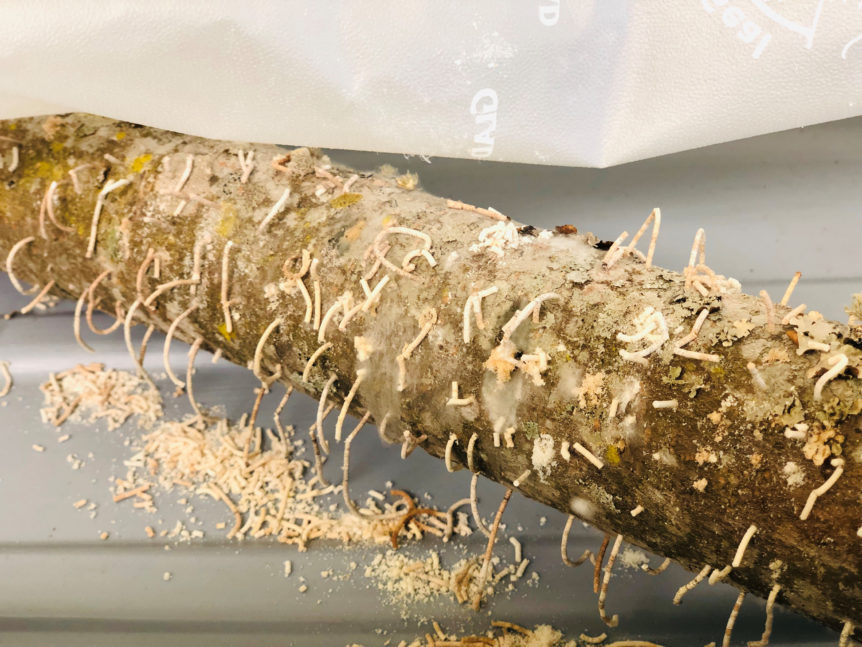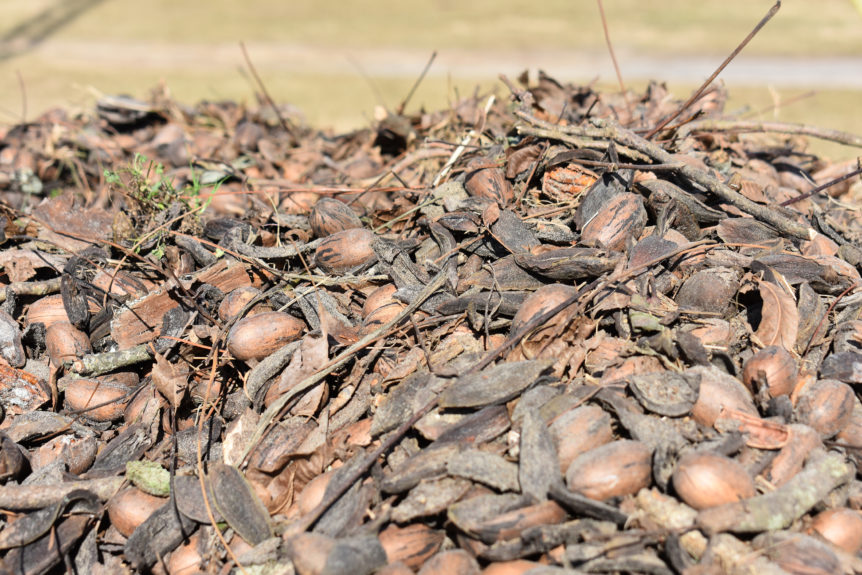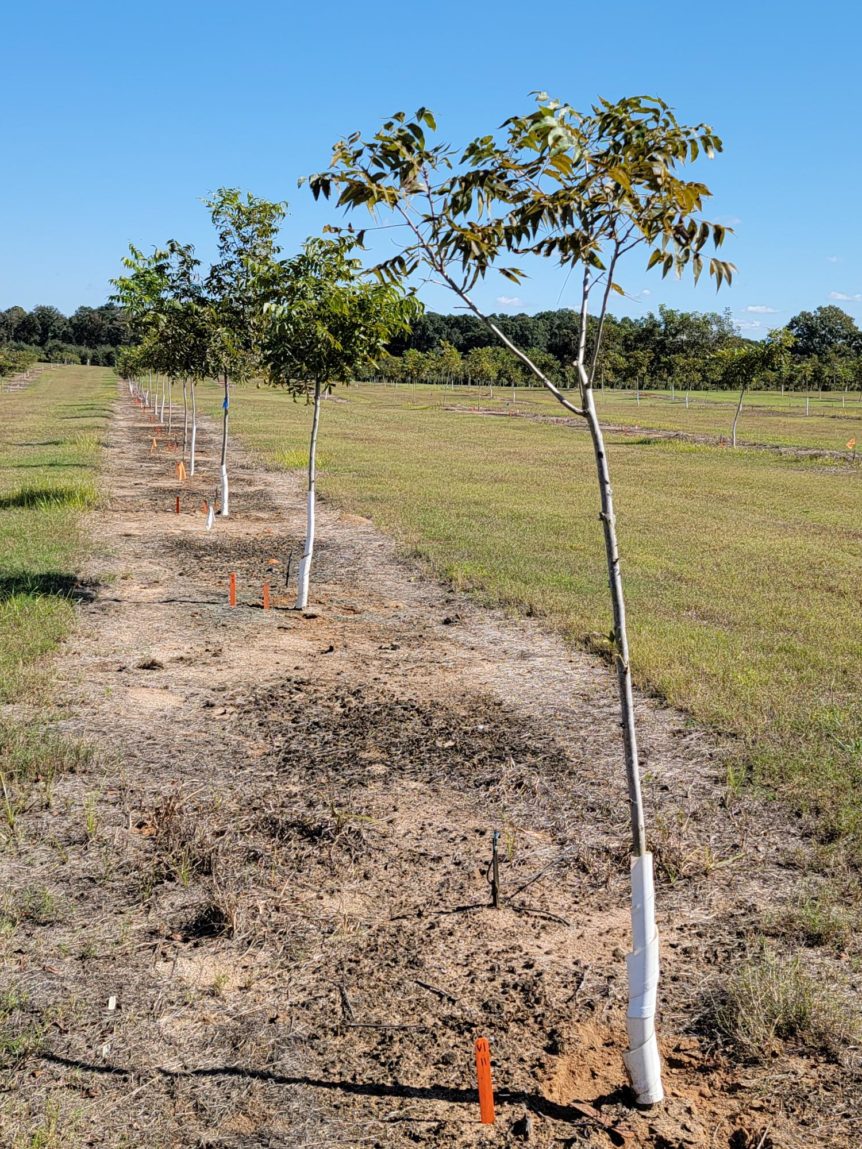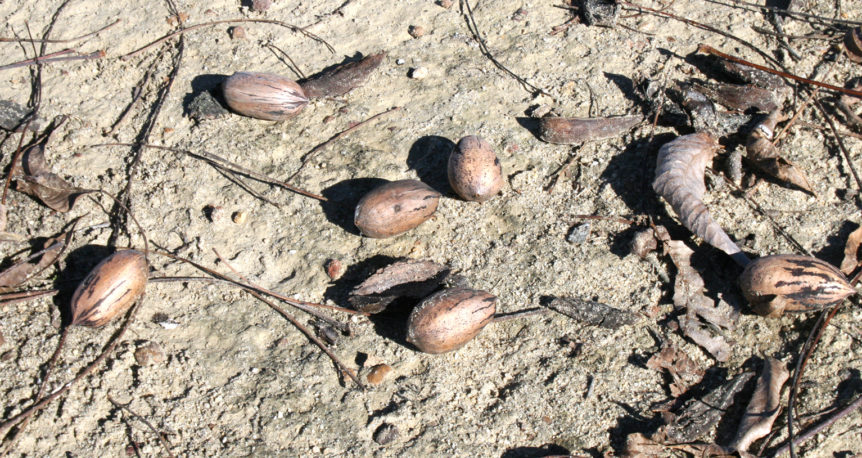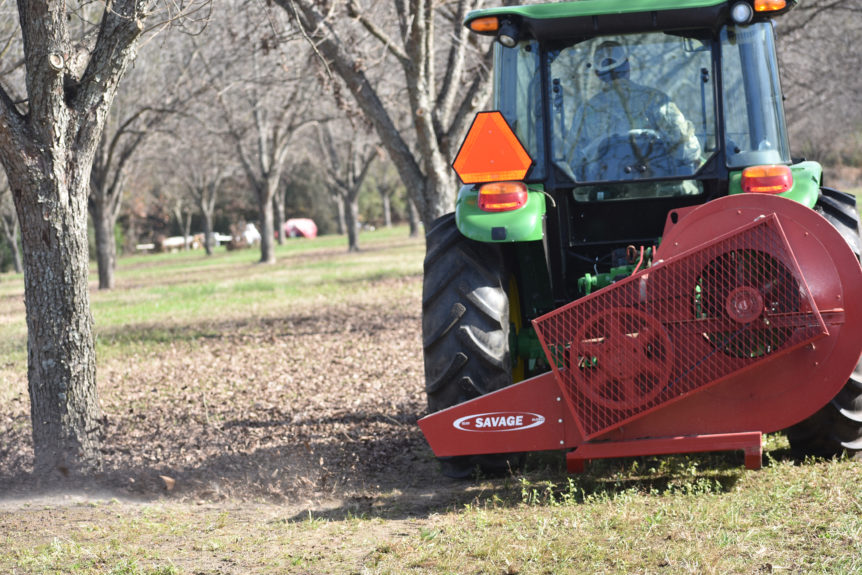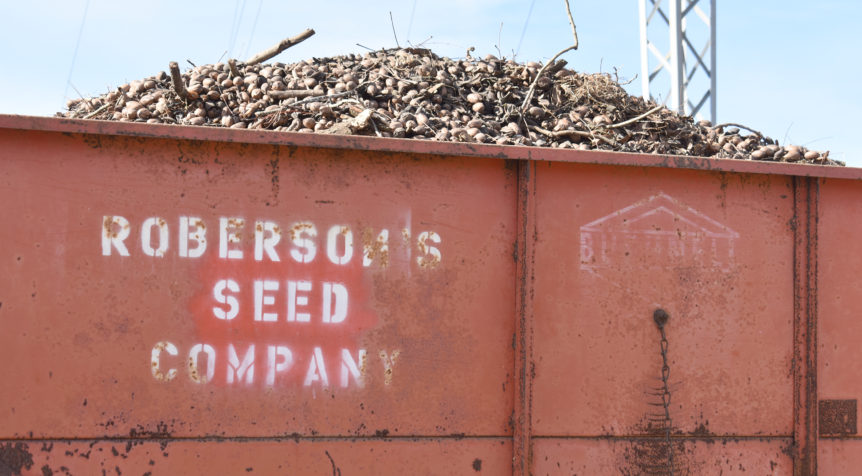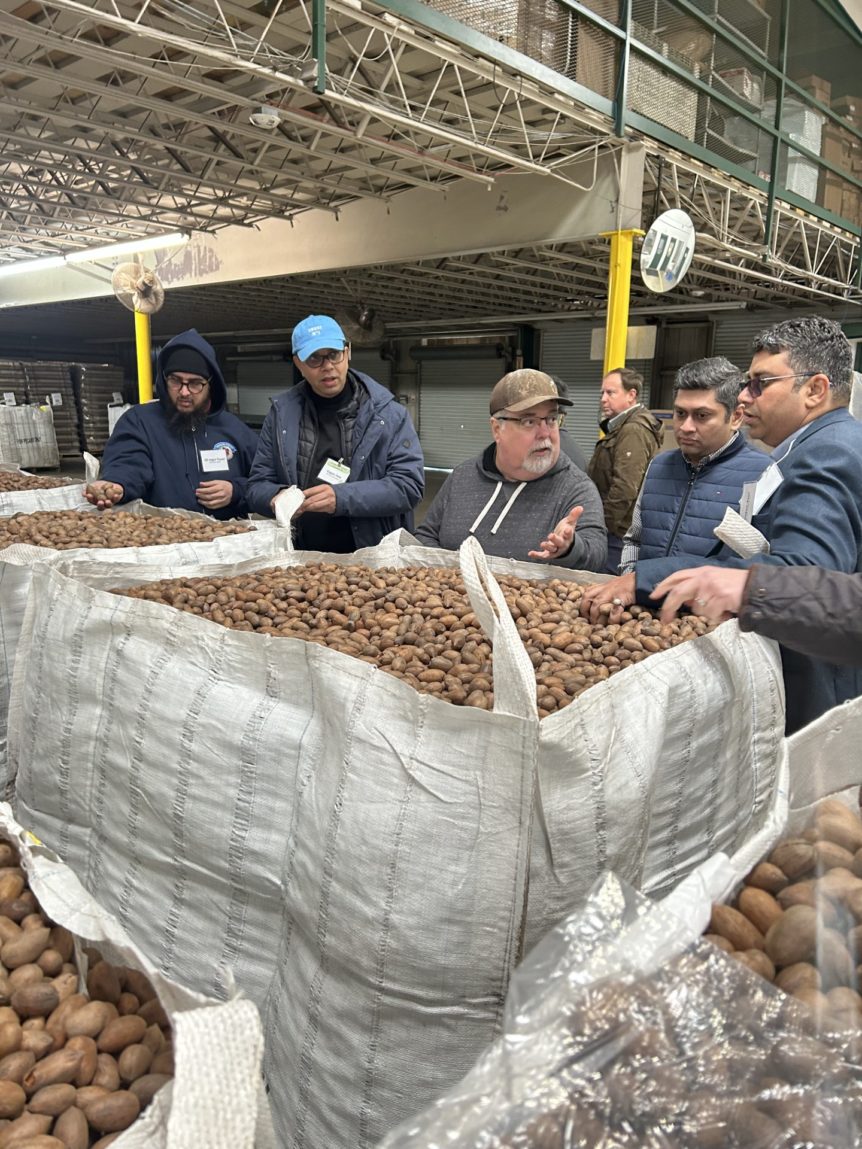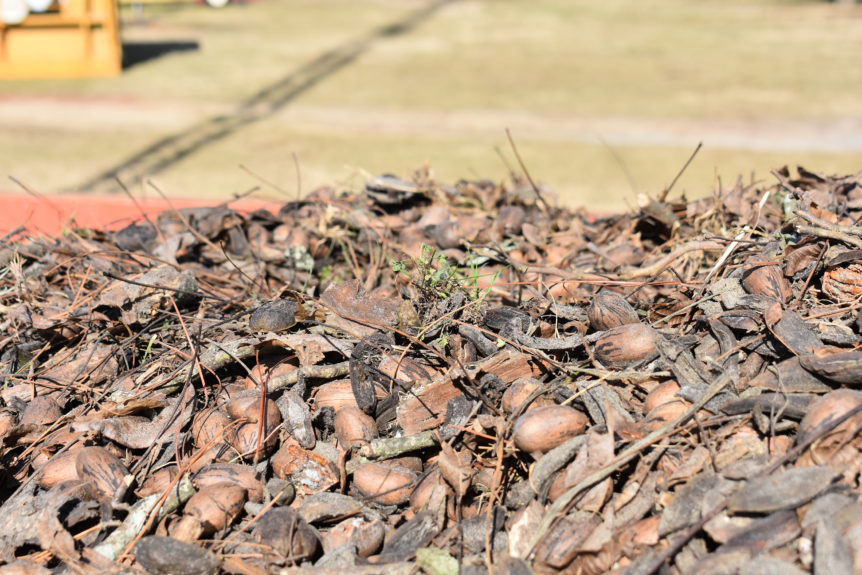By Clint Thompson The inability for pecan producers to depend on China as a future export destination means Southeast growers must find a viable alternative. With nearly 1.5 billion people, India may be that option that farmers are looking for. Lenny Wells, University of Georgia Cooperative Extension pecan specialist, is highlighting India in his presentations during the winter production meetings. …
Ambrosia Beetle Impact: Insect Pest a Concern for Southeast Pecan Producers
By Clint Thompson Ambrosia beetle damage on vulnerable young trees is a concern for pecan producers in the Southeast. Trees that are most vulnerable are young and stressed, especially those under flooded conditions. Apurba Barman, an assistant professor of entomology at the University of Georgia Tifton Campus, is cautioning growers about beetle damage during this winter’s pecan production meetings throughout …
Can’t Depend on China: Country’s Own Pecan Production Progress a Concern for SE Growers
By Clint Thompson China’s presence as an export destination for U.S. pecans is a thing of the past. Southeast (SE) producers should not rely on China continuing to import substantial amounts of pecans, says Lenny Wells, University of Georgia Cooperative Extension pecan specialist. “From this point on, I would not count on China anymore. We may see years where they …
Nematodes a Threat to Southeast Pecan Trees
By Clint Thompson Nematodes may be silent pests, but they can wreak havoc on pecan trees if left unchecked. Tim Brenneman, a plant pathologist with the University of Georgia, said the microscopic pests are common in pecan orchards across Georgia. Growers may not think much about them because they are underground. But they have a proven track record to devastate …
Pecan Producers Should Decrease Input Costs
By Clint Thompson Pecan producers need to either decrease their costs of production or increase their yields to improve their sustainability. University of Georgia (UGA) Cooperative Extension pecan specialist Lenny Wells believes the best option for producers, especially in the short term, is to reduce costs. “We can increase yields, but that’s going to require having the varieties that have …
Georgia’s Pecan Bearing Acres at 146,000
By Clint Thompson Georgia’s bearing pecan acres in 2023 was 146,000 acres, according to the U.S. Department of Agriculture National Agricultural Statistics Service. The number might continue to rise as more young orchards come online with a crop. “According to the satellite survey that the American Pecan Council did, and this has probably been four or five years ago, we …
Pecan Production Drops 6%
Pecan production was down this past season, especially in the Southeast, according to the U.S. Department of Agriculture National Agricultural Statistics Service. Utilized production decreased by 6%, compared to 2022, totaling 271 million pounds. Bearing acreage was estimated at 441,000, also a decrease from the prior season. The average yield was 616 pounds per acre, down 36 pounds from the …
American Pecan Council Aims to Boost India Exports with Reverse Trade Mission
Fort Worth, TX – In an effort to grow the pecan industry’s global relationships and increase exports, the American Pecan Council (APC) conducted its first reverse trade mission with Indian nut importers in key growing regions. The mission provided importers an up-close, educational look at the U.S. pecan industry and how the full value chain can offer a high-value, nutritious …
Pecan Production Meetings to Be Offered Across Georgia
By Clint Thompson Georgia pecan producers should make plans to attend one of the production meetings held over the next couple of months across pecan-producing counties. The meetings are hosted by University of Georgia Extension, including pecan specialist Lenny Wells. “Like all of the commodity meetings that the university does every year, we just go from county to county to …
Heavy Scab Pressure Not Impactful on This Year’s Pecan Crop
By Clint Thompson This year’s pecan season endured the worst scab disease pressure in 20 years according to one industry expert. However, this year’s crop survived and thrived thanks to better available fungicides, says Lenny Wells, University of Georgia Extension pecan specialist. “As far as scab pressure goes, the worst I’ve ever seen was 2003. We had an enormous amount …










